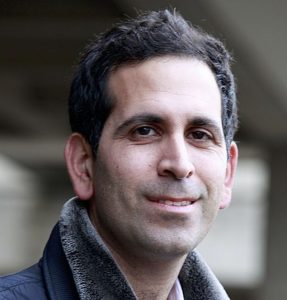A commonly prescribed blood pressure medication could offer a safer alternative for treating ADHD symptoms, according to a new study involving the University of Surrey. The findings suggest that amlodipine, a well-established drug for managing hypertension, may help reduce hyperactivity and impulsivity, key characteristics of attention-deficit/hyperactivity disorder (ADHD).
From Fish to Humans: Genetic Links in ADHD Research
The study, published in Neuropsychopharmacology, tested five potential drugs in rats genetically bred to exhibit ADHD-like symptoms. Of these, only amlodipine significantly reduced hyperactivity. To validate the findings, researchers turned to zebrafish (Danio rerio), an important model organism in neurological studies, which shares approximately 70% of its genes with humans. The zebrafish trials confirmed that amlodipine reduces hyperactivity and impulsivity, and for the first time, researchers confirmed that the drug crosses the blood-brain barrier, directly influencing brain function.
Further analysis of human genetic data reinforced the findings, showing that ADHD is linked to calcium channels in the brain—the same targets of amlodipine. A review of UK-wide patient records further strengthened the case, revealing that individuals taking amlodipine reported fewer mood swings and a lower tendency for risk-taking behaviour.
Dr Matthew Parker, co-author of the study from the University of Surrey, noted:
“Repurposing amlodipine, a well-established blood pressure medication, offers a promising and swift pathway to address ADHD symptoms. Our research indicates that, due to its existing approval and safety profile, amlodipine could be rapidly redeployed as a treatment option for ADHD, potentially providing relief to patients sooner than developing new medications.”
Why Zebrafish? The Genetic Overlap with Humans
Zebrafish have become an invaluable model in medical research due to their high genetic similarity with humans. In fact, they share a greater proportion of their genes with humans than many might expect. Some examples include:
- Chimpanzees (~98-99%) – our closest genetic relatives.
- Mice (~85%) – widely used in biomedical research.
- Dogs (~84%) – studied for genetic diseases and neurological conditions.
- Zebrafish (~70%) – a crucial model for studying brain function and drug effects.
- Fruit flies (~60%) – key for understanding genetics and neurobiology.
Because of this genetic overlap, zebrafish are often used in drug discovery, particularly for neurological disorders. Their transparent embryos and rapid development allow scientists to study the effects of medications in real-time.
A Safer Alternative to Existing ADHD Medications?
Current ADHD treatments, such as stimulant medications, are effective but often come with significant side effects, including appetite loss, high blood pressure, headaches, and sleep disturbances. Additionally, stimulant medications carry a risk of misuse. Amlodipine, already widely prescribed and well-tolerated, could offer a new alternative with a safer profile.
With approximately 25% of ADHD patients not responding well to existing treatments, the need for new options is urgent. If further clinical trials confirm these findings, amlodipine could be repurposed as an ADHD treatment much faster than developing a brand-new drug, providing relief for patients sooner.
The study highlights the importance of genetic research in understanding brain disorders and demonstrates how unlikely connections—such as a heart medication treating a neurodevelopmental condition—can lead to breakthroughs in medical science.











